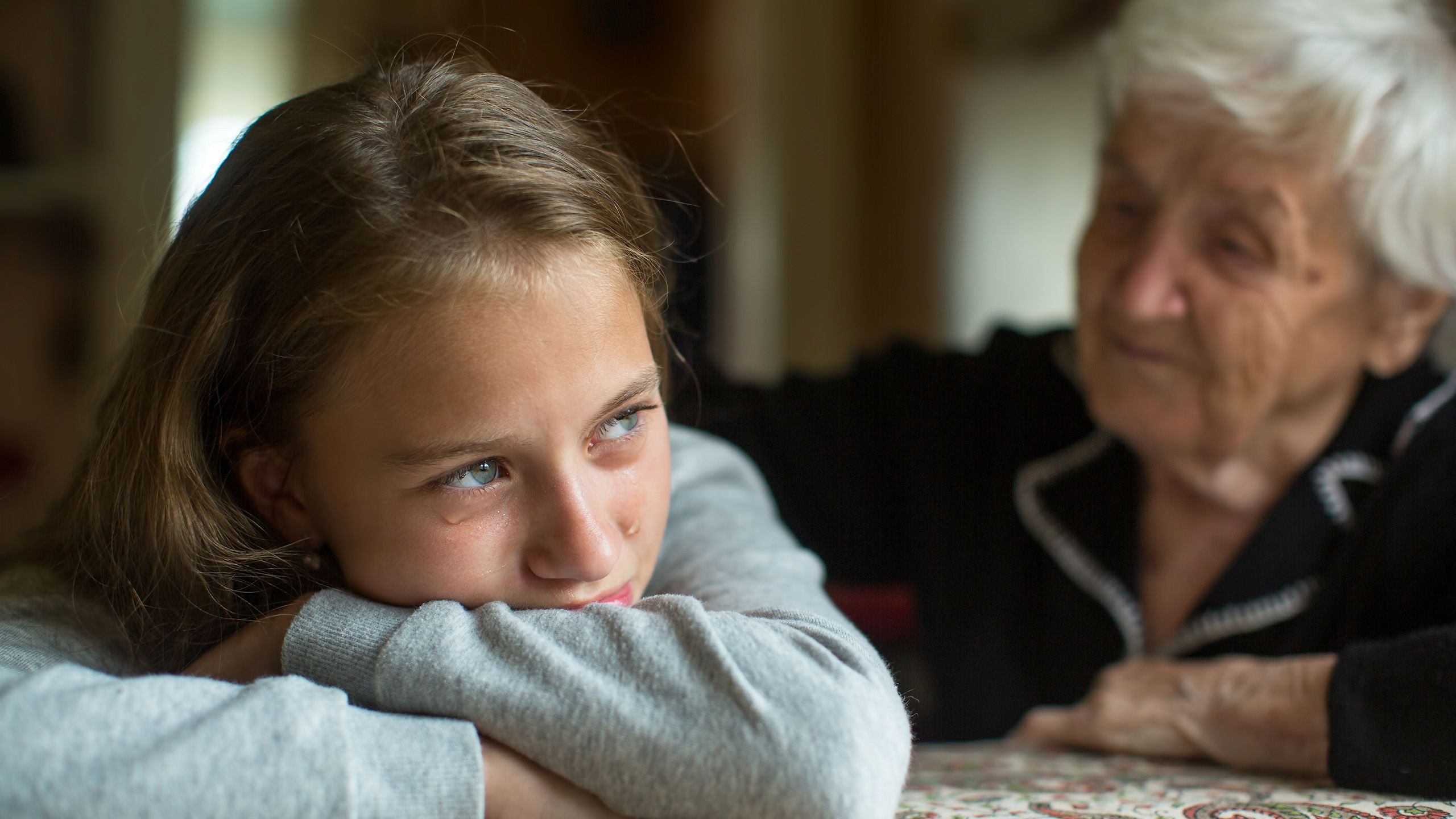Be Mindful
Psychologists Offer Advice to Help Children Understand Alzheimer’s During the Holidays

Holidays can be especially challenging for the six million Americans with Alzheimer’s disease and the families who love and care for them. Young children may have difficulty reconciling the season's joy with the confusion, fear, or sadness that surface when a loved one no longer recognizes their face or remembers their name. November is Alzheimer’s Awareness Month, and the research of Rutgers University–Camden psychologists Sean Duffy and Lauren Daniel offers insight into how children and their families can navigate the disease while providing support to relatives with Alzheimer's and dementia.
“Children younger than five probably won’t notice most signs of dementia, but older kids will,” said Duffy, an associate professor of psychology in the College of Arts and Sciences. “Different kids in different contexts will respond in ways that are not always predictable, but I do think most kids will be able to comprehend and deal with a family member experiencing cognitive decline.”
Duffy believes frank, proactive conversations with parents or guardians could help children who are too young to understand the causes and consequences of Alzheimer's disease.

Dr. Sean Duffy, associate professor of psychology in the College of Arts and Sciences
Dr. Sean Duffy, associate professor of psychology in the College of Arts and Sciences
“Parents should talk with their kids in advance of the holidays about a family member with cognitive decline,” Duffy said. “It’s something kids can relate to because everyone forgets things sometimes. Parents can explain that as people get older, this gets worse and can become a real problem.”
Lauren Daniel, associate professor of psychology in the College of Arts and Sciences, said that witnessing a relative’s cognitive decline may impact children and adults differently. Whereas adults may experience sadness over their loved one’s memory loss and further decline to come, children may not understand what the future holds for someone with dementia.
“Children are good at noticing physical and cognitive differences in those around them, but they may be less distressed by cognitive decline than adults because they may not understand what the decline means,” Daniel said. “Instead, they may get frustrated by the practical elements—like someone retelling the same story multiple times. Teaching children a kind way to stop a repeated story is a good way for them to practice social skills and preserve the relationship—'Grandma, you’ve told me about your dog before, but can you tell me more about your brother?’”

Dr. Lauren Daniel, associate professor of psychology in the College of Arts and Sciences
Dr. Lauren Daniel, associate professor of psychology in the College of Arts and Sciences
In addition to their cognitive effects, Alzheimer’s disease and other forms of dementia can cause physical challenges in patients over time. Daniel emphasized that children who have spent extended time away from grandparents or elders may need help adapting to these new physical limitations.
“Helping children understand specific limits can help everyone best prepare for what may come and avoid frustration in the moment,” Daniel said. “For example, parents can help their children make adaptations to playtime so that a relative who uses a cane, walker, or wheelchair can still join in.”
Daniel is confident that children can still form attachments and meaningful relationships with relatives who suffer from cognitive decline. Even the gifts that children receive over the holidays can create opportunities for interaction and lasting connection.
“Some of the best ways for children to form positive relationships with another person can be sharing something that is important to the child: a game, a book, or a favorite toy,” Daniel said. “Even if it’s just for five minutes, this can still become a special memory for the child. Not having seen relatives for a while may make it awkward at first, but giving children the chance to lead relatives in play can strengthen relationships.”
Strategies for Children and Families to Navigate Alzheimer’s Disease Over the Holidays
- Talk to children in advance about their relative’s condition and any changes they should expect to see
- Explain to children that a relative suffering from dementia is still the same person they have always known and loved
- Redirect repeated stories by gently and lovingly asking relatives about different topics that are important to them
- Adapt family activities and playtime with children so that relatives with dementia can still participate
- Speak with children after the visit has ended to manage any anxiety, frustration, or sadness they may feel

Creative Design: Karaamat Abdullah
Photographer: Ron Downes, Jr.